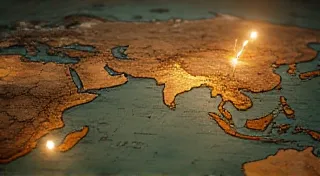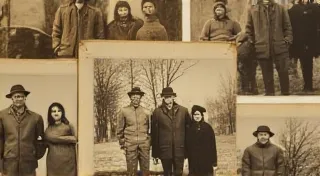Regional Traditional Games: Exploring the Heart of Culture
Dive into a fascinating journey through the world of traditional games, uncovering their history, rules, and profound cultural significance across diverse regions. Discover how these regional games and folk games are more than just entertainment – they are living testaments to the ingenuity, resilience, and shared identity of communities around the globe. Explore the unique and valuable contributions of regional games to our global cultural landscape.
What are Traditional Games and Why Do They Matter?
For millennia, games have been an integral part of human culture, woven into the fabric of celebrations, rituals, and everyday life. Unlike modern, often commercially driven forms of entertainment, traditional games are deeply rooted in the history and landscape of specific regions. They are passed down through generations, embodying the values, beliefs, and social structures of the communities that play them. These aren's merely activities; they are powerful tools for learning, social cohesion, and the transmission of cultural heritage. Regional games exemplify this unique connection to place and community.
Consider, for instance, how the simple act of playing can shape character. As we explore in The Alchemy of Skill: How Play Refines Character, these games are often imbued with lessons that extend far beyond the rules themselves. They challenge players to develop problem-solving abilities, strategic thinking, and crucial social skills – all while fostering a sense of camaraderie and shared experience.
But the world is changing. Rapid urbanization, globalization, and the dominance of mass media pose significant threats to the survival of many traditional games. As The Broken Circle: Games Lost to Urbanization eloquently describes, the transition to urban lifestyles often leaves little room for these deeply ingrained cultural practices. The unique character of regional games is particularly vulnerable in this context. Understanding their importance and actively working to preserve them is crucial to safeguarding our collective cultural memory.
Beyond Rules and Regulations: The Spirit of Play
While the rules of a game are important, they are only a small part of the story. Traditional games often thrive on improvisation and creativity, allowing players to adapt and innovate within established frameworks. Beyond the Rules: Improvisation and Creativity in Traditional Play delves into this vital aspect, highlighting how the ability to think on your feet, to adapt to unexpected circumstances, and to contribute to the collective experience elevates play to an art form. The diversity of regional games offers a rich tapestry of approaches to this creative freedom.
Furthermore, traditional games are often powerful storytellers. Even without explicit narratives, the actions, movements, and interactions within the game can convey complex meanings and cultural values. The Silent Storyteller: Non-Verbal Narratives in Traditional Play examines how gestures, postures, and unspoken cues contribute to a rich tapestry of meaning, creating a unique form of communication that transcends verbal language. These stories are integral to the preservation of regional identity.
Mapping the Landscape of Play: Distribution and Adaptation
The distribution of traditional games is far from random. They are intimately connected to the geography, climate, and resources of specific regions. The Cartography of Play: Mapping Regional Game Distribution provides a fascinating overview of how game distribution patterns reflect historical migrations, trade routes, and cultural exchanges. The unique variations of regional games tell a story of cultural diffusion and adaptation. The very design of a game can be directly shaped by the surrounding environment, a concept beautifully illustrated in The Rhythm of the Land: How Geography Shapes Game Design.
However, traditional games are not static entities. They are constantly evolving, adapting to new circumstances and incorporating influences from other cultures. The Shifting Sands of Adaptation: Games in a Globalized World explores the challenges and opportunities that globalization presents to the survival and transformation of these cherished practices. The unique character of regional games can be both enriched and threatened by this process.
The Weight of History: Resistance and Remembrance
Throughout history, traditional games have served a variety of functions beyond mere entertainment. In some cases, they have been used as a form of cultural resistance, providing a safe space for marginalized communities to express their identity and challenge oppressive regimes. Shadows of the Past: Games as Historical Resistance sheds light on these often-overlooked aspects of game history, revealing their role as powerful tools for social and political change. The preservation of regional games becomes an act of preserving the stories of those who played them.
The preservation of language is another crucial aspect of cultural heritage, and surprisingly, traditional games can play a vital role in this effort. The Echo of Stone: How Games Preserve Lost Tongues demonstrates how the rules, names, and chants associated with these games can help to keep endangered languages alive, ensuring their survival for future generations. This is particularly vital for maintaining the unique linguistic heritage embedded within regional games.
The Fragility of Tradition: Transmission and Memory
The transmission of traditional games is often reliant on oral tradition, making them especially vulnerable to loss. Whispers Across Generations: Oral Transmission and the Fragility of Play poignantly captures this vulnerability, emphasizing the urgent need for documentation, preservation efforts, and renewed interest from younger generations. Ensuring younger generations learn and adapt regional games is vital.
The connection between games and collective identity is undeniable. The Playground of Memory: Games and Collective Identity examines how shared games foster a sense of belonging, strengthen social bonds, and reinforce cultural values. The distinctive qualities of regional games contribute significantly to local identity.
Beyond the Surface: Ritual, Celebration, and Social Order
In many cultures, traditional games are deeply intertwined with rituals, celebrations, and social structures. The Geometry of Celebration: Ritual and Play in Rural Societies explores how games are often integrated into festivals, ceremonies, and seasonal events, contributing to the overall sense of community and shared identity. The rules and customs surrounding regional games often mirror social hierarchies and values.
This connection to ritual isn't always obvious, and examining the underlying significance can be a deep dive into cultural beliefs. The Weight of Ritual: Examining the Sacred in Play delves into the sacred dimensions of traditional games, revealing how they can be used to connect with the spiritual realm and reinforce cultural values.
Finally, consider the underlying principles that structure these games. The Clockwork Heart of Tradition: How Games Teach Social Order reveals how seemingly simple games can impart lessons about fairness, cooperation, and respect for authority, contributing to the overall maintenance of social order. The adaptations and variations of regional games often reflect unique local customs and social dynamics.
The Urgent Need for Preservation
The world of traditional games is a treasure trove of cultural heritage, offering invaluable insights into the history, values, and creativity of diverse communities. But this heritage is fragile, and its survival depends on our collective efforts to document, preserve, and revitalize these cherished practices. Let’s work together to ensure that the echoes of laughter continue to resonate across generations. The Ghost of Laughter: Recovering Lost Games serves as a call to action, encouraging individuals and organizations to actively participate in the recovery and revitalization of these invaluable cultural traditions. The preservation of regional games ensures the continued vibrancy and diversity of our global cultural landscape.


















